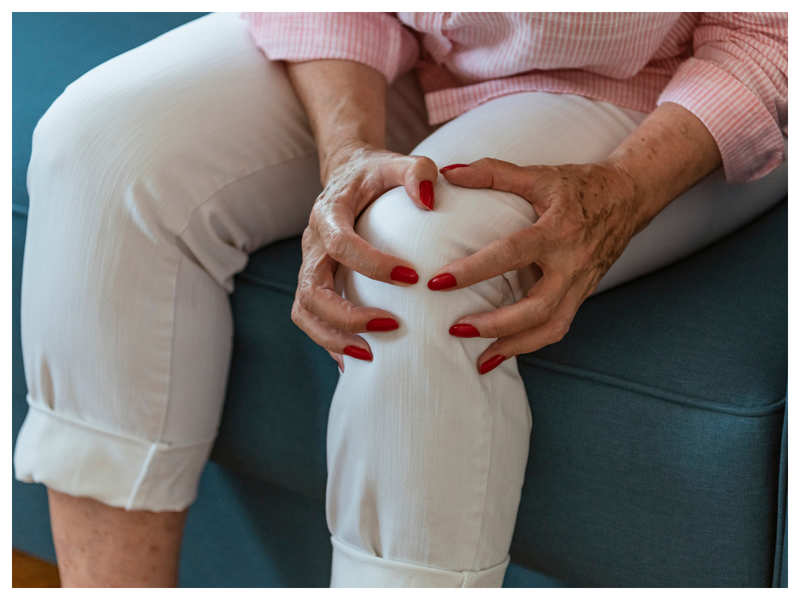Rheumatology And The Things One Needs to Care About

New Delhi: Rheumatological conditions/autoimmune diseases have been increasing at an alarming rate, early detection can help arrest disease progression and prevent complications. The Department of Rheumatology & Clinical Immunology at Sri Ramakrishna Hospital provides an in-depth look into various rheumatological conditions and the signs to look for to make an early diagnosis.
Rheumatology is a subspeciality of medicine, which involves the study of muscles, tendons and joints. Immunology deals with the immune system, which is the first line of our body’s natural defence system. It plays a vital role in safeguarding us from various illnesses affecting our bodies. However, when this immune system fails to function properly, it leads to many autoimmune diseases.
Rheumatic diseases can affect any part of the body, from head to toes. It may start as simple as a fever or rash, and these signs may only be the beginning of a serious underlying health problem. Rheumatological conditions need to be diagnosed and treated at the earliest to avoid long-term complications, including joint deformities and disabilities. General awareness of rheumatology and immunology is necessary to make an early diagnosis and avoid unwanted long-term sequelae.
Rheumatoid arthritis
The most common form of immune-mediated inflammatory arthritis is Rheumatoid Arthritis (RA). It generally affects the joints either on one side or both sides of the body. This condition usually starts as joint pain, swelling and stiffness, and if left ignored, it could progress to deformities and severe restriction in motion. In addition, RA can affect other parts of the body including the skin, eyes, lungs, heart, and kidneys.
Ankylosing spondylitis
Ankylosing spondylitis (AS) is another form of immune-mediated inflammatory arthritis and is a type of seronegative arthritis. AS typically affects adolescents and young adults, causing back pain and stiffness, more pronounced first thing in the morning and after prolonged rest. It causes spine deformity and a stopped posture if left untreated. AS also affects peripheral joints and cause extra-articular features, commonly affecting eyes (uveitis), skin (psoriasis) and bowel (inflammatory bowel disease).
Psoriatic arthritis and other Seronegative arthritis
Psoriatic Arthritis (PsA) is another type of seronegative arthritis which occurs in one-third of patients with skin or scalp psoriasis. It can occur even before or concurrently, or after developing psoriasis. There are also other types of seronegative arthritis such as Reactive Arthritis, Spondyloarthropathy (SpA) and Enteropathic Arthritis (arthritis due to ulcerative colitis and Crohn’s disease). These conditions are collectively labelled as seronegative arthritis as the blood test for rheumatoid factor (RF) is negative. They share many clinical, radiological and genetic features, different from RA.
Various traditional and contemporary treatments are available for RA, AS, PsA and other seronegative arthritis. Conventional treatments are called disease-modifying anti-rheumatic drugs (DMARDs), and modern treatments are constantly evolving to target specific proteins (Cytokines), which perpetuate the disease process. These modern drugs are called ‘Targeted Therapies’ and ‘Biologics’, which have revolutionized the treatment of arthritis. These contemporary treatments are in the form of tablets, injections, and infusions.
Gout and Pseudogout
Gout is the most common form of Inflammatory Monoarthritis (arthritis affecting a single joint), and the great toe is the most common joint affected. It causes sudden onset of excruciating joint pain associated with swelling, redness and heat. It is due to a buildup of high uric acid levels in the body with the deposition of uric acid crystals in the affected joint. It is generally due to the high intake of a purine-rich / high protein diet. Alcohol is another common risk factor for gout, and lifestyle modifications including reducing weight, increasing physical activities, adequate hydration and avoiding a high purine diet and alcohol are crucial in the treatment and prevention of gout. Pseudogout is another form of crystal arthritis that mimics gout, and it is usually secondary to certain medical conditions and not due to dietary risk factors.
Connective tissue diseases and Vasculitis
Connective Tissue Diseases (CTD) and vasculitis are also common rheumatological conditions, and the examples include Lupus (SLE), Sjogren’s syndrome, Scleroderma, Mixed Connective Tissue Disorder (MCTD) and Myositis. They can cause many symptoms affecting various organs with or without Arthritis, so patients with these conditions may present to different specialists with diverse symptoms. It is crucial to diagnose these conditions very early and treat them aggressively to prevent major organ or life-threatening complications. Modern treatments including ‘biologics’ are now available to effectively manage these once dreadful conditions.
Osteoporosis
As the name implies, this condition leads the bones to become porous and weakens the bone to a great extent, resulting in a fracture. Osteoporosis is aptly called a ‘silent disease’ as the condition may go unnoticed for a long time, and the first presentation may be a fracture without any trauma. It is most common in post-menopausal women, but it can affect young women and men due to some risk factors. It can be effectively treated using both conventional and modern drugs in the form of tablets, subcutaneous injections and intravenous infusions.
Juvenile Idiopathic Arthritis (JIA) and other childhood rheumatological conditions
JIA is similar to the adult form of immune-mediated inflammatory arthritis such as RA, AS and PsA that occurs in children aged 16 or younger. Treatment for JIA are similar to the adult form of arthritis, and they include DMARDs, targeted therapies and biologics. A child needs to be diagnosed at the earliest and treated intensively to prevent irreversible joint damage and other unwanted long-term sequelae. Periodic Fever Syndromes (PFS) or Systemic Autoinflammatory Disorders (SAID) are other rare forms of childhood rheumatological conditions that commonly present with fever and rash with or without arthritis. These conditions require careful evaluation and management by experts with modern treatments to stop disease progression and prevent complications.Disclaimer: This is syndicated feed from PR agency and any legal liability for the content is theirs only.






